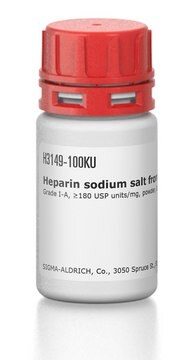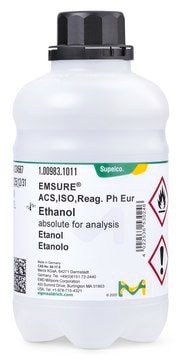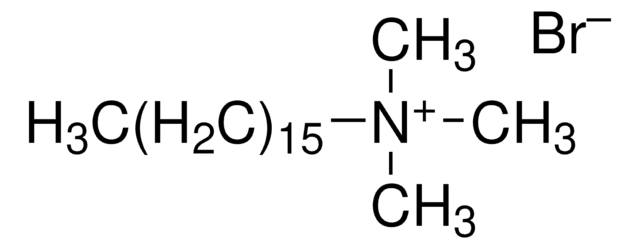I9392
3-Methylbutanol
for molecular biology, BioReagent, ≥98.5%
Sinónimos:
3-Methyl-1-butanol, Isoamyl alcohol, Isopentyl alcohol
About This Item
Productos recomendados
grado
for molecular biology
Línea del producto
BioReagent
Análisis
≥98.5%
formulario
liquid
técnicas
RNA extraction: suitable
pH
5.6 (20 °C, 25 g/L)
densidad
0.809 g/mL at 20 °C (lit.)
idoneidad
suitable for nucleic acid purification
temp. de almacenamiento
room temp
cadena SMILES
CC(C)CCO
InChI
1S/C5H12O/c1-5(2)3-4-6/h5-6H,3-4H2,1-2H3
Clave InChI
PHTQWCKDNZKARW-UHFFFAOYSA-N
¿Está buscando productos similares? Visita Guía de comparación de productos
Descripción general
Aplicación
Producto relacionado
Palabra de señalización
Danger
Frases de peligro
Consejos de prudencia
Clasificaciones de peligro
Acute Tox. 4 Inhalation - Eye Dam. 1 - Flam. Liq. 3 - Skin Irrit. 2 - STOT SE 3
Órganos de actuación
Respiratory system
Código de clase de almacenamiento
3 - Flammable liquids
Clase de riesgo para el agua (WGK)
WGK 1
Punto de inflamabilidad (°F)
110.3 °F - closed cup
Punto de inflamabilidad (°C)
43.5 °C - closed cup
Equipo de protección personal
Eyeshields, Faceshields, Gloves, type ABEK (EN14387) respirator filter
Certificados de análisis (COA)
Busque Certificados de análisis (COA) introduciendo el número de lote del producto. Los números de lote se encuentran en la etiqueta del producto después de las palabras «Lot» o «Batch»
¿Ya tiene este producto?
Encuentre la documentación para los productos que ha comprado recientemente en la Biblioteca de documentos.
Los clientes también vieron
Nuestro equipo de científicos tiene experiencia en todas las áreas de investigación: Ciencias de la vida, Ciencia de los materiales, Síntesis química, Cromatografía, Analítica y muchas otras.
Póngase en contacto con el Servicio técnico












